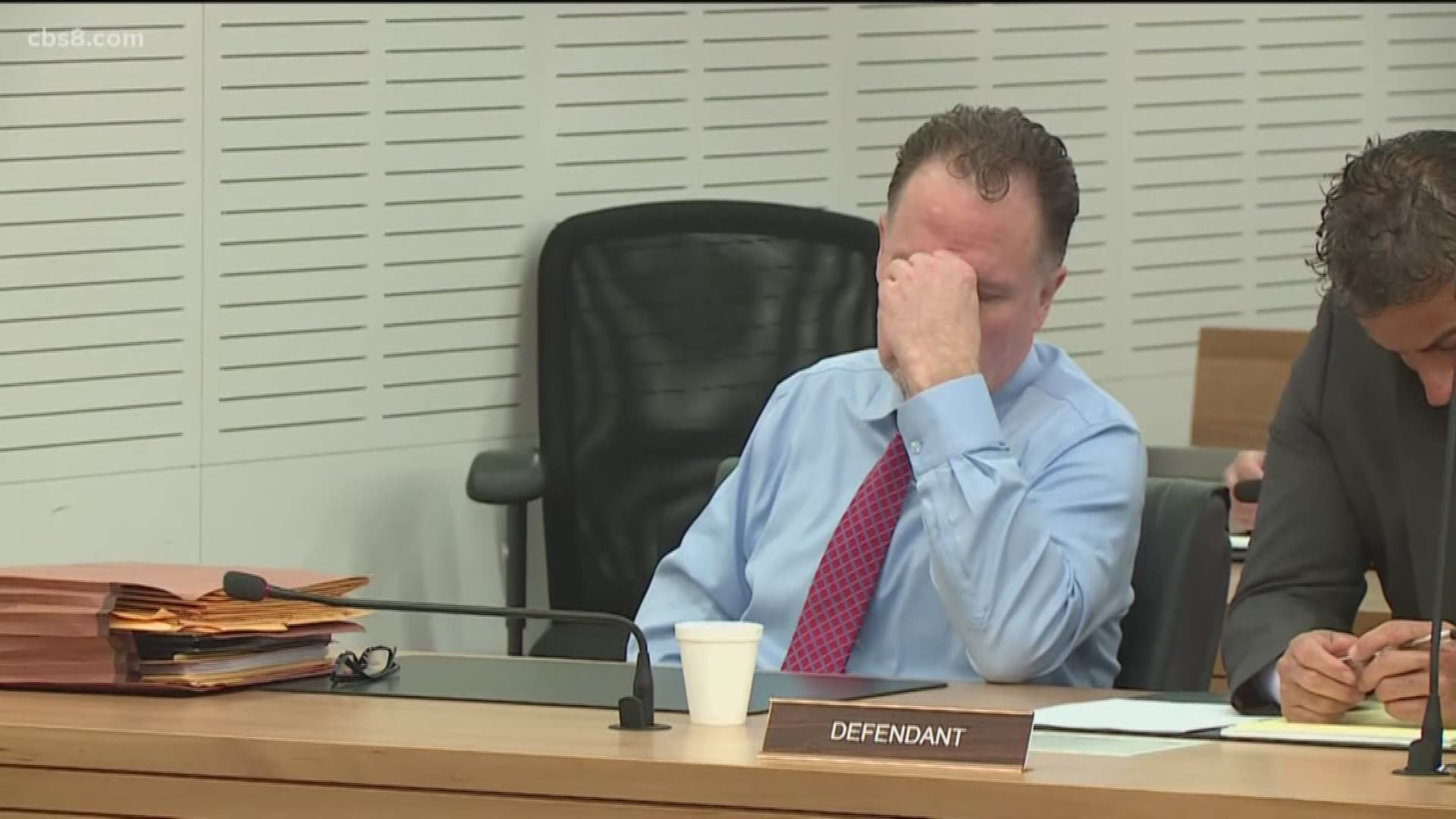SAN BERNARDINO, Calif. (AP) — A jury on Monday recommended the death penalty for a Southern California man convicted of killing a family of four with a sledgehammer and burying their bodies in shallow desert graves.
Jurors in San Bernardino made the recommendation for Charles "Chase" Merritt, 62, in a case that puzzled investigators for years after a couple and their two young sons vanished from their home in 2010. Their bodies were found three years later.
Merritt supported his head on his fists and closed his eyes as the verdicts were read. He also spoke briefly to his attorney.
He was convicted this month of the murders of his former business associate Joseph McStay, McStay's wife Summer, and their 4- and 3-year-old sons, Gianni and Joseph Jr.
Merritt had pleaded not guilty and his lawyers didn't offer witnesses during the penalty phase of his trial, insisting he is innocent.
San Bernardino County Superior Court Judge Michael A. Smith set a Sept. 27 hearing to formally sentence Merritt. He thanked the jurors after the verdicts were read, saying he knew the decision was "extremely difficult."
Authorities said they believed Merritt killed the family as McStay was cutting him out of his business making and selling custom water fountains. When the family disappeared, there were no signs of forced entry at their San Diego County home and their car was found parked at a strip mall near the Mexico border.
For years, no one could figure out what happened to them. In 2013, their bodies were found in shallow graves in the desert after an off-road motorcyclist discovered skeletal remains in the area. Authorities also unearthed a rusty sledgehammer that they said was used to kill the family.
Merritt was arrested the following year. Authorities said they traced his cellphone to the area of the desert graves in the days after the family disappeared and to a call seeking to close McStay's online bookkeeping account. Merritt also had referred to McStay in the past tense during an interview with investigators.
Authorities concede the case against Merritt largely focused on circumstantial evidence and that questions remain about what happened at the McStay home.
During the trial's penalty phase, prosecutor Britt Imes asked jurors to consider any possible motive for the killing of two young boys, whether they could have been witnesses to the murder of their parents or simply victims of callous killings.
"There is no motive that can be ascribed to the killer of a 4-year-old and a 3-year-old that passes muster," he said.
Merritt's attorneys didn't call any witnesses during the penalty phase, instead appealing to any lingering doubts jurors may have had about killings they say their client didn't commit.
"From the very beginning, this case screamed doubt," defense attorney Raj Maline told jurors. "This case is filled with unanswered questions."
California has not executed anyone since 2006. Voters approved a ballot measure to speed up executions in 2016, but Gov. Gavin Newsom this year placed a moratorium on executions while he's in office.
The McStay family vanished in 2010
When the McStay family disappeared there was no evidence of struggle or foul play in their Fallbrook home, but there were signs of a hasty departure – unopened groceries left on the counter and the family's dogs still in the backyard.
Four days after their disappearance, the McStay’s Isuzu Trooper was located near the San Ysidro border.
Grainy surveillance video of a family of four crossing the border on foot and Google inquiries found on the family's home computer researching documents required for travel to Mexico, initially led the focus of the search south of the border – leading to speculation that the McStays may have left voluntarily.
More than three years later, though, in November 2013, a motorcyclist found the remains of the McStay bodies buried in shallow graves in the Mojave Desert near Victorville.
A sledge hammer was also found in one of the graves.
Investigators ruled the deaths a homicide and determined that the McStays were fatally bludgeoned inside their Fallbrook home, although no trace of blood was ever found there.
In 2014, Merritt, was arrested for the murders. He went on trial in January of this year.
Prosecutors said Merritt killed the McStays over money after he was being cut out of the decorative fountain business the two owned. Prosecutors also said Merritt had stolen $42,000 from the business – which Joseph McStay had discovered. They claim surveillance video and cell phone evidence link him to the crime.
“That greed and self-interest motivated a man to kill a family of four and take them from this earth,” the prosecution said during trial.
Merritt's attorneys said the two men were best friends and investigators overlooked another possible suspect in the killings. Instead, they said, authorities zeroed in on an innocent man, but the evidence didn't add up, noting there were no signs of an attack inside the family's home.
"They tried his character and not the facts of this case," defense attorney James McGee told jurors.
Many questions still remain about the family's disappearance. Prosecutors acknowledge details of the killings aren't entirely clear but say the evidence from the family's car, cellphone towers and financial accounts link Merritt to the killings.

